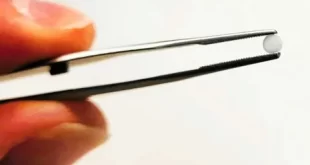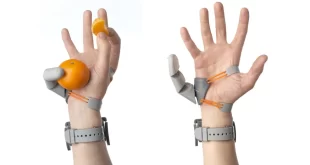Position Summary
The Washington University School of Medicine, Department of Radiation Oncology has an opening for a Postdoctoral Research Associate in the Computational Radiotherapy Lab (CORAL) led by Dr. Geoff Hugo in the Division of Medical Physics. CORAL focuses on safe and high quality use of artificial intelligence in radiation oncology.
The successful candidate should be interested in developing and applying innovative quality assurance tools to support artificial intelligence implementation. Projects will include the use of magnetic resonance imaging, computed tomography, and other imaging modalities for guiding radiation therapy, the use of artificial intelligence-based automated segmentation and synthetic CT generation, and workflow development for deploying quality assurance of clinical artificial intelligence systems.
The successful candidate should possess a strong background in computational image analysis and scientific programming. Experience with deep learning and other supervised learning approaches is desired. Individuals interested in pursuing an academic research career or a career in medical physics are encouraged to apply. Training opportunities in preparation for a medical physics residency, including a CAMPEP-accredited post-graduate certificate program in medical physics, are available in the department for qualified and interested candidates.
Consistent with its academic mission and standards, the Washington University School of Medicine is committed to achieving excellence through diversity. As a community of faculty, staff and students engaged in research, patient care, scholarship, teaching and learning, the School of Medicine fosters an environment that is diverse and welcoming. Efforts are made to provide a supportive environment in which people from a wide variety of backgrounds and cultures may encounter each other in a spirit of cooperation, openness and mutual respect.
For more information on the Computational Radiotherapy Lab, please visit https://hugolab.wustl.edu/.
Information on being a postdoc at Washington University in St. Louis can be found at https://postdoc.wustl.edu/prospective-postdocs-2/.
Required Qualifications
- Ph.D. in medical physics, physics, engineering, computer science or a related field.
- Strong background in image analysis, image registration and/or image segmentation.
- Strong background in machine learning, artificial intelligence, and/or computer vision.
- Strong scientific programming skills in Python or related languages along with familiarity with image analysis tools such as ITK and VTK.
- Familiarity working with high-performance computing environments including GPU platforms for high-throughput analysis of images.
- Ability and interest in working in small, interdisciplinary teams with other technical scientists and clinicians.
Working Conditions
This position works in a laboratory environment with potential exposure to biological and chemical hazards. The individual must be physically able to wear protective equipment and to provide standard care to research animals.
Environment
The medical physics division currently has over 40 ABR certified medical physicists, including over 30 faculty positions, supporting our clinical operations, research, and educational activities. The division has over 60 other members consisting of medical physics assistants, QA technicians, residents, post-doctoral fellows, graduate students, and staff. The Department of Radiation Oncology supports a state-of-the-art clinic located at Barnes-Jewish Hospital and Siteman Cancer Center, as well as several clinical affiliates. Clinical resources include numerous linear accelerators, very busy brachytherapy services with two HDR remote afterloaders, MR-IGRT, Varian Ethos, a proton center, a GammaKnife, Varian Edge SRS/SBRT system, and a spectrum of imaging devices, including a dedicated MR-simulator with HIFU capability. The clinic is supported by an active software development team. The institution is firmly committed to advancing the field of radiation therapy by actively pursuing novel clinical/research projects and investing in our faculty and in cutting-edge technology. Several development projects are underway including ongoing partnerships with industry to develop next-generation treatment processes and devices, and there are numerous other government, industry, and department funded research projects. The department supports several education programs, including the longest-standing CAMPEP accredited medical physics residency and CAMPEP-accredited post-graduate certification and MS programs, and a recently-formed Ph.D. in Medical Physics program. Research infrastructure and funding are diverse and the research support resources are outstanding. The department offers highly productive collaboration opportunities with our clinical and cancer biology colleagues as well as university wide collaboration opportunities across various departments in the medical and other schools. There are currently several significant international projects and collaborations.
Salary Range
Base pay is commensurate with experience.
Applicant Special Instructions
Interested candidates should send a cover letter (brief) and curriculum vitae along with a list of three references to Dr. Geoffrey Hugo at gdhugo@wustl.edu.
Questions
For frequently asked questions about the application process, please refer to our External Applicant FAQ.
Accommodation
If you are unable to use our online application system and would like an accommodation, please email CandidateQuestions@wustl.edu or call the dedicated accommodation inquiry number at 314-935-1149 and leave a voicemail with the nature of your request.
Caractéristiques de l'emploi
| Catégorie emploi | Postdoctoral |
 Etudes Non Stop Etudes Non Stop
Etudes Non Stop Etudes Non Stop



